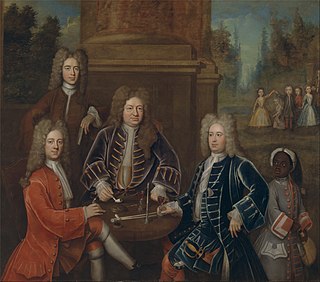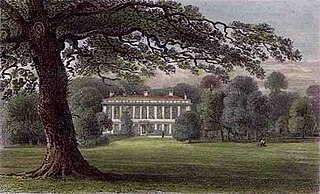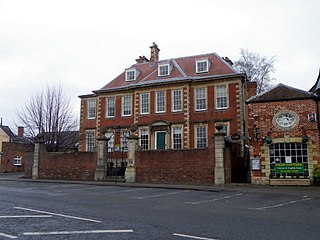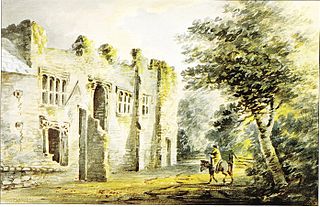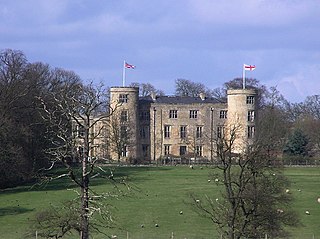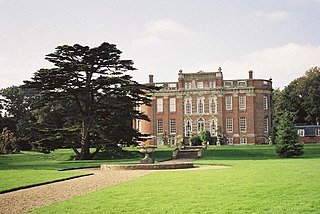Thomas Watson (ca. 1701 – 7 January 1766) of Grindon Bridge, Northumberland, was an English politician who sat in the House of Commons from 1740 to 1765.
Watson was the son of Thomas Watson of Berwick and his wife Margaret Clerk. He married Barbara Forster. He was an influential member of the corporation of Berwick and was Mayor of Berwick in 1727, 1729, 1732, 1734, 1736 and 1739. In 1732 he was appointed commissary of musters in south Britain. [1]
Watson was returned as Member of Parliament (MP) for Berwick-upon-Tweed at a by-election on 27 November 1740. He voted regularly with the Government and in 1741 was appointed deputy commissary for Danish and Hessian troops in British pay. He was returned again in 1741 and 1747. [1]

Berwick-upon-Tweed is a constituency represented in the House of Commons of the UK parliament by an elected Member of Parliament (MP). Since 2015 this MP has been Anne-Marie Trevelyan of the Conservative Party who succeeded the longest serving Liberal Democrat MP Sir Alan Beith who stood down prior to the 2015 election.

The 1741 British general election returned members to serve in the House of Commons of the 9th Parliament of Great Britain to be summoned, after the merger of the Parliament of England and the Parliament of Scotland in 1707. The election saw support for the government party increase in the quasi-democratic constituencies which were decided by popular vote, but the Whigs lost control of a number of rotten and pocket boroughs, partly as a result of the influence of the Prince of Wales, and were consequently re-elected with the barest of majorities in the Commons, Walpole's supporters only narrowly outnumbering his opponents.

The 1747 British general election returned members to serve in the House of Commons of the 10th Parliament of Great Britain to be summoned, after the merger of the Parliament of England and the Parliament of Scotland in 1707. The election saw Henry Pelham's Whig government increase its majority and the Tories continue their decline. By 1747, thirty years of Whig oligarchy and systematic corruption had weakened party ties substantially; despite the fact that Walpole, the main reason for the split that led to the creation of the Patriot Whig faction, had resigned, there were still almost as many Whigs in opposition to the ministry as there were Tories, and the real struggle for power was between various feuding factions of Whig aristocrats rather than between the old parties. The Tories had become an irrelevant group of country gentlemen who had resigned themselves to permanent opposition.
Watson was returned unopposed as MP for Berwick at the 1754 British general election. In March 1754 he is shown in a list of secret service pensions as receiving one of £500 a year. This pension lapsed when Newcastle, who awarded it, left office and Watson spent years trying to recover it. At the 1761 British general election, Watson was returned unopposed again. He vacated his seat in December 1765. [2]

The 1754 British general election returned members to serve in the House of Commons of the 11th Parliament of Great Britain to be summoned, after the merger of the Parliament of England and the Parliament of Scotland in 1707. Owing to the extensive use of corruption and the Duke of Newcastle's personal influence in the pocket boroughs, the government was returned to office with a working majority.

The 1761 British general election returned members to serve in the House of Commons of the 12th Parliament of Great Britain to be summoned, after the merger of the Parliament of England and the Parliament of Scotland in 1707. This was the first Parliament chosen after the accession to the throne of King George III. It was also the first election after George III had lifted the conventional proscription on the employment of Tories in government. The King prevented the Prime Minister, the Duke of Newcastle, from using public money to fund the election of Whig candidates, but Newcastle instead simply used his private fortune to ensure that his ministry gained a comfortable majority.
Watson died without issue on 7 January 1766. [1]
